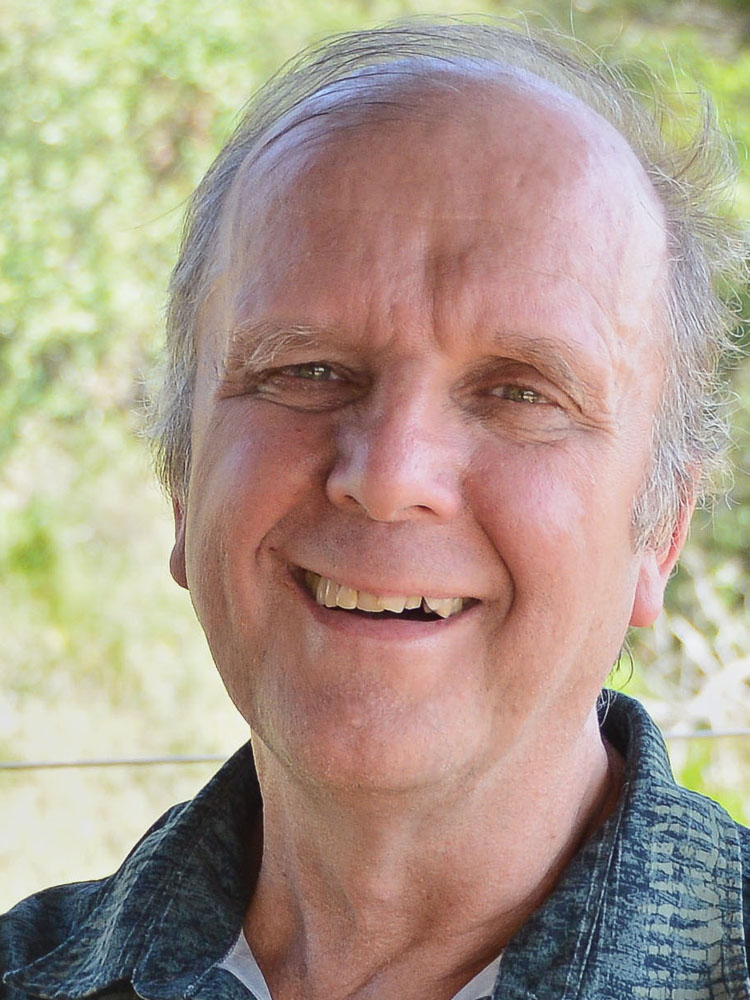Genre: Poetry
John Fox and Project Avary: Helping Teens Heal Through Poetry
John Fox is the author of Poetic Medicine: The Healing Art of Poem-Making (TarcherPerigee, 1997) and Finding What You Didn’t Lose: Expressing Your Truth and Creativity Through Poem-Making (TarcherPerigee, 1995), and his work is featured in the PBS documentary Healing Words: Poetry and Medicine. In 2005, he founded the Institute for Poetic Medicine and his chapbook, The Only Gift to Bring (Seasonings Press, 2015), is available through the institute. Fox blogs about his experience leading writing workshops for Project Avary, an organization in San Rafael, California offering long-term support, resources, guidance, and training for children with incarcerated parents.
 In the spring of 2016, Zach Whelan of Project Avary called the office of the Institute for Poetic Medicine to ask if I was available to bring poetry to the teens they served. This residency would occur during a mid-June, two-week summer camp.
In the spring of 2016, Zach Whelan of Project Avary called the office of the Institute for Poetic Medicine to ask if I was available to bring poetry to the teens they served. This residency would occur during a mid-June, two-week summer camp.
Zach and I spoke for over an hour. I was impressed with three things: 1. The seasoned care the Project Avary staff holds for teens with a parent or parents in prison. 2. The solid and proven program Project Avary has built, which includes a commitment of ten years to a child from the age of eight through their teen years. 3. Zach’s openness to not only poetry writing, but my focus on poetry-as-healer.
By the end of our talk and in subsequent meetings, we agreed to collaborate in an ongoing, mutual process that would bring poetry into the lives of Avary participants.
I would learn about the acute challenges faced by these teens—their sense of loss and abandonment, the societal stigma attached to having a parent in prison, as well as their capacity for resilience and how much they could teach us. I needed to learn and understand that reality to better know what my optimum role could be in joining this team. This process helped me in the selection of relevant poems that could serve as catalysts for writing.
In turn, Avary would learn from me how poetry can make a direct impact on the teens and their ability to dive into their issues of concern. Through the durable capacity of a poem, using the tools of poem-making, and by the natural strength of a supportive community, we could create a safe and generative way to explore and express. This mutual, encompassing collaboration becomes particularly important because the time to nurture and tend to their creative voices does not end with our limited time together—it actually begins!
What I can report to you is that Project Avary has incorporated poetry writing workshops into the core of their curriculum.
The conclusion of my two-year summer camp residency (with forty new campers joining each year) included a two-hour evening program where all participants shared their poems (also songs, skits, magic tricks, etc.) with the entire community. Avary calls this “The Untalent Show” with the emphasis on making it an open invitation to everyone—especially those who might feel they have nothing worthy to offer.
When a poem was read, there was a palpable quieting of a mostly young and happily raucous group at summer camp, which included dozens of young counselors and other staff. The people listening were less “audience” and more like family member, sensitive to their brothers and sisters, and cheering them on.
But what about the poetry? With their permission, I’m able to share some of the poetry by these young Project Avary participants.
LOVE
I didn’t want love.
Love is like dead tissue that won’t fall off.
I thought i didn’t need Love
but everyone wanted Love.
Did i need love.
What was the point of Love.
Did i want Love, did i need Love.
Would love make me happy.
The truth was i wanted love.
But would love want me.
—Monique Cook, age 13
UNTITLED
She was pure in a world not ready for her.
A rose born without thorns.
A body of water with no ripples.
A mirror with no cracks.
She was content in every sense of the word.
But she was born in a world with no intention
of keeping her that way.
—Malayah, age 16
TO ANGER
As you grip my mind
& sway my heart
spark dark flames
in the night of day
you keep notorious thoughts
tenaciously raising
barriers, levels
depleting every second
every month, every hour
contemplating my next act,
my next task & past actions;
forgetting present endeavors,
forgetting my loving nature,
forgetting the roots of my life,
forgetting me.
—Joseph Gladney, age 18
Support for this event was provided, in part, by Poets & Writers, thanks to a gift from Diana Raab. Additional support for Readings & Workshops in California is provided by the California Arts Council, a state agency, the National Endowment for the Arts, a federal agency, and by the Friends of Poets & Writers.
Photo: John Fox (Credit: Valerie Knight).Spooky Halloween Reads, WME Drops Bill O’Reilly, and More
Turkish novelist Elif Shafak joins Future Library; Publishers Weekly’s best books of 2017; Bill Cain, pseudonymous author of Murder, She Wrote, dies; and other news.
Mark Twain’s Financial Schemes, Colin Kaepernick’s Book Deal, and More
Rome soccer team plays Anne Frank’s diary on loudspeaker; a mobile pop-up library of Filipino American literature; writers try on clothing subscription services; and other news.
Rumored Salinger Books, Poe’s Hatchet Jobs, and More
Stephanie Burt on gender transition literature; Angela Flournoy and Issa Rae to develop HBO drama; the story behind Netflix’s Alias Grace; and other news.
William Brewer
“I gave my body to the mountain whole. / For my body, the clinic gave out petals inked with curses. / Refill, refill, refill, until they stopped.” William Brewer reads poems from his debut poetry collection, I Know Your Kind (Milkweed Editions, 2017), and takes PBS NewsHour’s Jeffrey Brown on a tour of his hometown of Morgantown, West Virginia to speak about the opioid crisis.
Poetry Contests Open Through Halloween
Poets, Halloween is a week from today, so between costume shopping and pumpkin carving, consider making some time to submit to the following contests with an October 31 deadline. Whether you’re sitting on a single poem, a chapbook, or a full-length collection, these contests each offer a prize of at least $1,000 and publication. Don’t be scared…
Single Poem:
North American Review James Hearst Poetry Prize: A prize of $1,000 and publication in North American Review is given annually for a poem. Eduardo C. Corral will judge. Entry fee: $20
Poetry Society of the United Kingdom National Poetry Competition: A prize of £5,000 (approximately $6,500) and publication on the Poetry Society of the United Kingdom website is given annually for a poem. A second-place prize of £2,000 (approximately $2,600) and a third-place prize of £1,000 (approximately $1,300) are also given. The winners will also be published in the Poetry Review and invited to read at the Ledbury Poetry Festival in Ledbury, England, in Spring 2018. Poets from any country are eligible. Hannah Lowe, Andrew McMillan, and Pascale Petit will judge. Entry fee: £6.50
Chapbook Contests:
Comstock Review Jessie Bryce Niles Poetry Chapbook Contest: A prize of $1,000, publication by the Comstock Writers Group, and 50 author copies is given biennially for a poetry chapbook. Kathleen Bryce Niles-Overton will judge. Entry fee: $30
Tupelo Press Sunken Garden Poetry Prize: A prize of $1,000 and publication by Tupelo Press is given annually for a poetry chapbook. Major Jackson will judge. Entry fee: $25
Full-Length Contests:
American Poetry Review Honickman First Book Prize: A prize of $3,000 and publication by American Poetry Review is given annually for a debut poetry collection. The winning book will be distributed by Copper Canyon Press through Consortium. Gregory Pardlo will judge. Entry fee: $25
Elixir Press Poetry Awards: A prize of $2,000 and publication by Elixir Press is given annually for a poetry collection. A second-place prize of $1,000 and publication is also awarded. Kathleen Winter will judge. Entry fee: $30
Persea Books Lexi Rudnitsky First Book Prize: A prize of $1,000 and publication by Persea Books is given annually for a debut poetry collection by a woman who is a U.S. citizen or permanent resident. The winner also receives a six-week, all-expenses-paid residency at the Civitella Ranieri Center in Umbria, Italy. Entry fee: $30
Truman State University Press T. S. Eliot Prize: A prize of $2,000 and publication by Truman State University Press is given annually for a poetry collection. Entry fee: $25
University of North Texas Press Vassar Miller Prize: A prize of $1,000 and publication by University of North Texas Press is given annually for a poetry collection. Rosanna Warren will judge. Entry fee: $25
Visit the contest websites for complete guidelines, and check out our Grants & Awards database and Submission Calendar for more upcoming contests in poetry, fiction, and nonfiction. Spooky submitting!
Garth Greenwell on Opera, Hurston/Wright Legacy Awards, and More
Kazim Ali on the purpose and place of pop poetry; never-before-seen photos of Joan Didion; John McCain to publish memoir in April; and other news.
Mellow Autumn
“The mellow autumn came, and with it came / The promised party, to enjoy its sweets. / The corn is cut, the manor full of game; / The pointer ranges, and the sportsman beats / In russet jacket:—lynx-like is his aim; / Full grows his bag, and wonderful his feats. / Ah, nut-brown partridges! Ah, brilliant pheasants!” writes Lord Byron in his epic poem “Don Juan.” The poem, which satirizes the legendary Don Juan and portrays him as a character easily seduced by women, is told in seventeen cantos and this section describes a party at an English countryside estate. Use Byron’s line about a mellow autumn as the first line of your poem. Continue on from there and write about a festive autumnal gathering, perhaps using Byron’s mentions of outdoor recreation and landscape, animals and nature, a country or rural setting, or the ottava rima rhyme scheme for further inspiration.
Marilynne Robinson on the Importance of Humanities, Neruda’s Cause of Death, and More
Tracy K. Smith visits China as U.S. poet laureate; Xerox releases free story anthology about the workplace; women share experiences of sexual harassment in the publishing industry; and other news.





